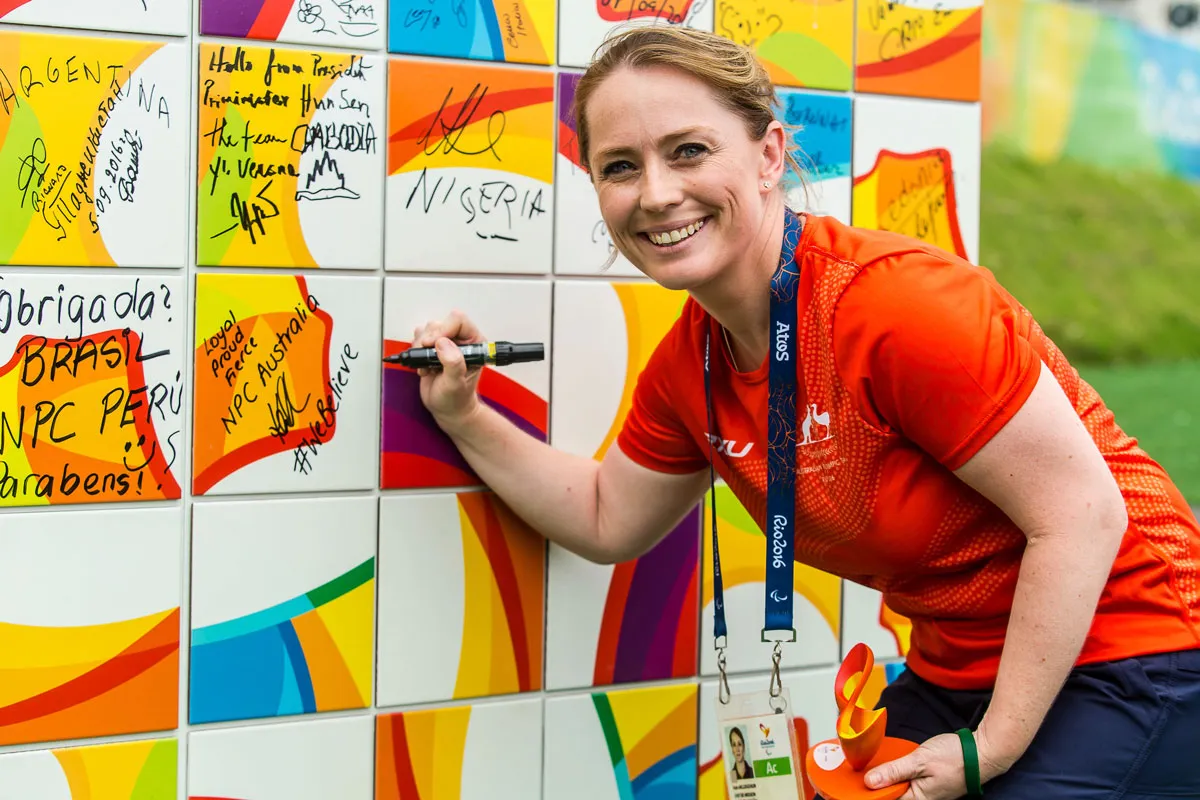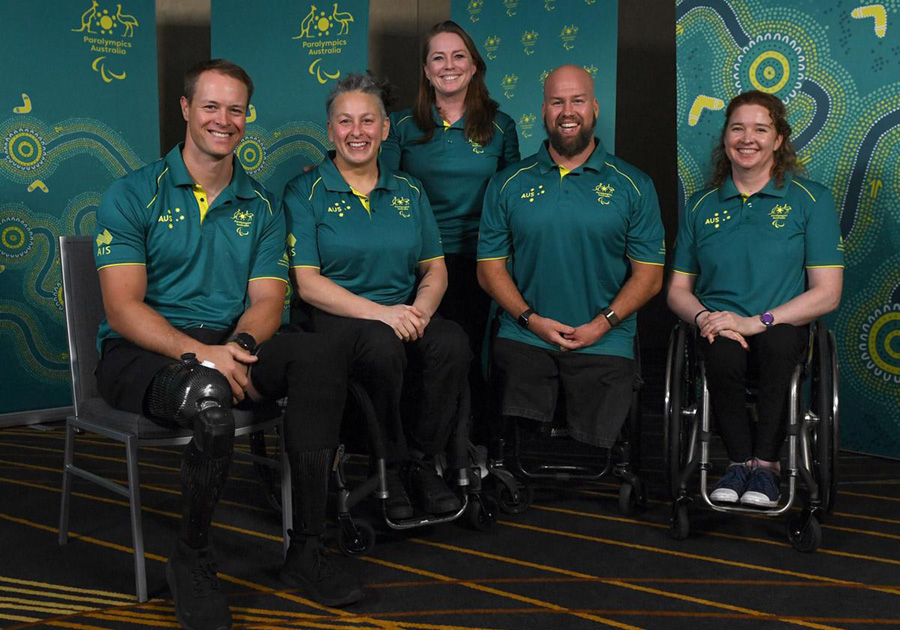
Since 1908 and 1952, the Australian Olympic and Paralympic teams respectively have been guided by a Chef de Mission.
Taken from the French language, Chef de Mission translates to ‘Head of Mission’ and their role is exactly that, to unite and lead the national delegation to sporting success, on the world’s biggest stage.
Meet our Paris Olympics chefs!
|
Our latest news, resources, podcasts, courses and webinars:
|
More than 100 years after the role was created, Kate McLoughlin became the first female to lead a team through the Paralympics in Rio in 2016.
Since then, McLoughlin has gone on to lead our Summer and Winter Paralympic teams to success and she is taking it all on again for the fourth time, preparing to lead our Paralympians into Paris 2024.
Credited with creating a performance-driven, inclusive and supportive environment for athletes, McLoughlin was also named ‘Best Official’ by the International Paralympic Committee in 2017.
But like any great leader, Kate recognises that success is driven by collaboration and preparation.
“A Chef de Mission is the person who oversees the planning and implementation of an Olympic or Paralympic Team,” McLoughlin says.
“We bring together expert practitioners across performance services, operations and media to ensure our athletes have the best possible performance environment when it counts.
I believe success comes when this team of people – athletes, coaches, officials and staff – work together to develop trust and collaborative relationships well before the Games begin.
“A strong, inclusive culture has been critical to our success in recent campaigns. No matter what is thrown at us, the team works together to find solutions and to ensure athlete performance and wellbeing are what we always prioritise.”
The COVID-era saw a sharp increase in worldwide viewership of the Paralympic Games and while overall this was a positive outcome for the sports and athletes, there were some who were quick to criticise the changing landscape of Paralympic sport.
McLoughlin embraces this change saying that it allows athletes to be seen as nothing more or less than just that, athletes.
“Paralympians have always considered themselves as elite athletes first and foremost as have fans of Paralympic sport,” McLoughlin says.
“But for those who watched Paralympic sport for the first time in Tokyo, it became clear that the toughness and spirit of our team was the element that most resonated, not the stories of what brought each athlete to the Paralympic Games.
“Disability is rarely the lead story in modern Paralympic sport, it is about elite performance. I was so proud of the way our athletes spoke in support of one another, in support of our team culture, Paralympic sport in general and how they used their platform to help all Australians rethink their perceptions of disability and show how sport has this unique ability to change the world for the better.”
Just like those athletes, McLoughlin is using her own platform to create positive change and push for greater inclusivity on all fronts.
When asked whether her appointment as the first female Chef de Mission felt groundbreaking she says that it’s the collaborative efforts of female change-makers that has felt the most impactful.
“The honour of being appointed the first female Chef de Mission was huge for me,” she says. “But one thing that I think is groundbreaking, is the fact that in 2024 we have, for the first time, female Chefs de Mission for all three major multi-sport National Teams (Olympic, Paralympic and Commonwealth Games).
“Whilst the final year of preparations for the Games involve a huge amount of hard work and time away from family, it has been wonderful to have Anna (Meares) and Petria (Thomas) by my side.
“Three strong female leaders working together and in regular contact to support one another on three very similar journeys has been a highlight of this campaign for me.
It’s her team-focused mindset that has propelled McLoughlin to achieve such success as Chef de Mission.
She says that everything from the integrity training and frameworks to inclusive consultation processes have a pivotal role in steering our Aussies toward Paralympic success.
“Every decision we make in the build-up to the Games is focused on athlete safety, wellbeing and performance but is also layered with advice from those with lived experience of disability and of being a high-performance athlete,” McLoughlin says.
“The athlete voice counts. The coach voice counts and the sports’ views count.”
Listening to these voices requires work to build relationships – a Paralympic Team doesn’t magically come together once every four years – it takes work to build and gain the trust of every member over weeks, months and years.
"It’s not easily given, it has to be earned. That’s so important to me as a leader.
“Embedding integrity education in Para-sports is so important. Not just Para-sport, all sport.
Educating our athletes on their responsibilities as they relate to integrity across a range of areas gives us the best chance to ensure sport is fair.
“In Para-sport, classification integrity is paramount, and we have been so fortunate to work in partnership with Sport Integrity Australia to develop critical modules that will assist our athletes, our coaches and our administrators to understand what their role is in maintaining the reputation and integrity of Australian Paralympic sport and what they need to do to adhere to the International Paralympic Committee Classification Code.”
With the Olympics and Paralympics just around the corner, McLoughlin is already looking forward to future Games and says that it’s the more inclusive culture and structures she helped cultivate, which she is proudest to leave behind as foundations for future success.
“I hope my legacy will be the ongoing strength of the Australian Paralympic Team culture we have built to honour the trailblazers of our movement, recognise the contributions of all Paralympians to our sports and to use their expertise and skills to add value to future Paralympic teams.
“We have increased the percentage of people with disability on our headquarters team from 6% in Tokyo to 13% in Paris.
“I want this to continue to rise – particularly in areas like coaching, media, sports science and leadership within Paralympics Australia.
“Paralympians have incredible experience and transferable skills that will be critical to propelling this amazing movement forward in what we hope will be a more inclusive world toward Brisbane 2032.”
The Paralympic Games will be held in Paris from 28 August to 8 September 2024.
